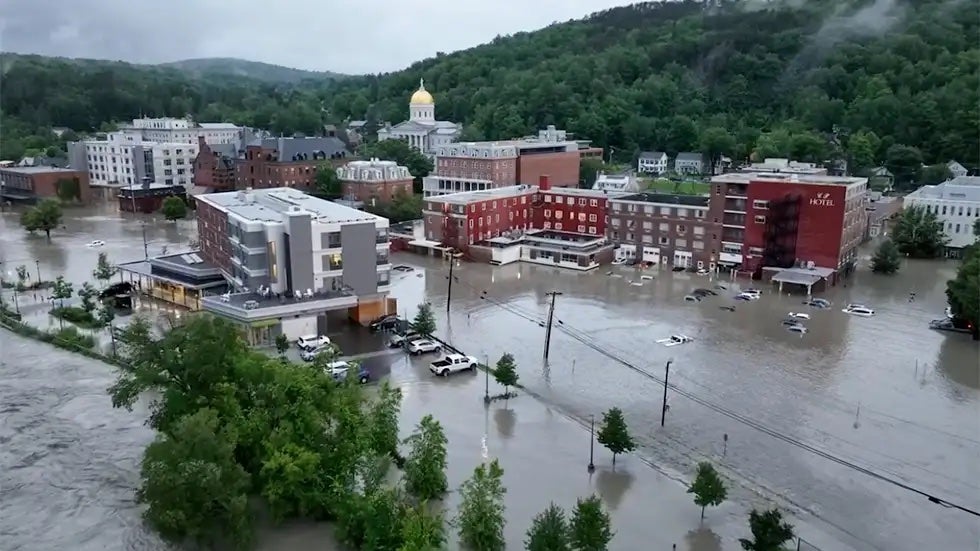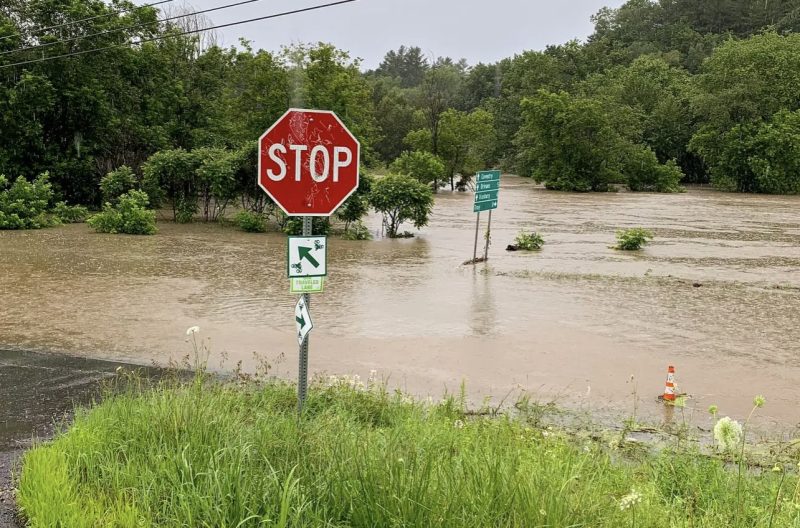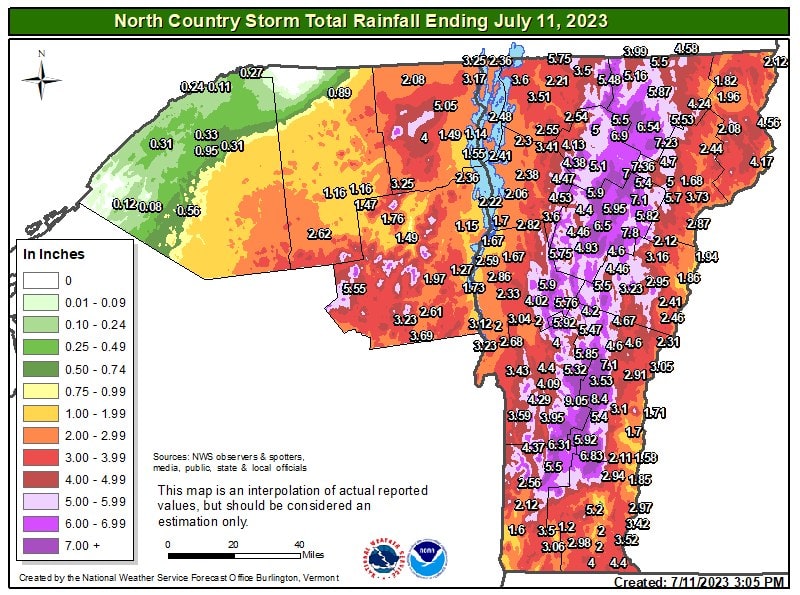
This last month of July in New England was a wet and wild one, with record breaking rainfall bringing flooding throughout much of the region. From Boston, MA, to Mount Washington, New Hampshire’s tallest peak (6,288 feet), and all across Vermont, heavy rain swept through the east coast with a vengeance, especially in mid-July.
In New Hampshire, a staggering 16.91 inches of rain fell at Mount Washington, setting a new record for most precipitation in July. That’s nearly four times the average of 4.6 inches. The downpour came right after June saw a record breaking 8.4 inches of snow at Mount Washington, and 17.3 inches of total liquid precipitation.

Vermont, even with lower monthly totals than neighboring New Hampshire, still experienced extreme and devastating flooding from the heavy rain. Montpelier (just south of Stowe Mountain Resort) experienced the wettest month on record, with a record breaking 12.06 inches of rain. Further south in Vermont, Rutland (just west of Killington Ski Resort) saw their wettest July ever, with 7.42 inches of rain. The torrential downpours and sustained heavy rain resulted in 6.23 inches of rain falling in a 38 hour period in Ludlow, near Okemo Mountain Resort.

In Massachusetts, both Boston and Worcester saw their second wettest July on record. Downtown Boston sees 3.27 inches of rain in July on average, however this year the city got more than three times that, with 10.43 inches falling in the month. In comparison, July 2022 brought Boston only 0.62 inches of rain.
These major rain events and flooding following drought and below-average precipitation raises majors concerns in regard to climate change and what the future holds. According to the Fourth National Climate Assessment, New England sees 55% more extreme rain now than the region did in 1958.
If the east coast saw similar wet (and cold) storms like these throughout their winters, snow totals would be absolutely massive. Here is to hoping for fast recoveries and rebuilding to the individuals and areas impacted by the detrimental flooding.